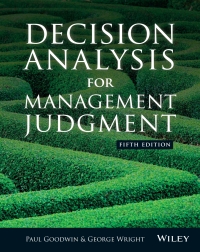(9) A retail chain would like to purchase a playing field from Bellton council and build a...
Question:
(9) A retail chain would like to purchase a playing field from Bellton council and build a new supermarket on the site. The negotiations between the retailer and the council involve three key issues: (i) the price at which the council will sell the land, (ii) whether the supermarket will build a new community center to compensate the local people for the loss of the playing field and (iii) the extent to which the retailer will landscape the area around the supermarket when the construction is complete (there will either be no landscaping, ‘partial landscaping’ or ‘complete landscaping’).
Given below are the values that the retailer and the council attach to possible land prices that might be agreed (0 = worst outcome, 100 = best ).
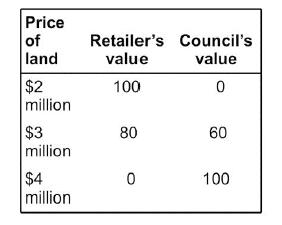
The values attached to the possible levels of landscaping are shown below.
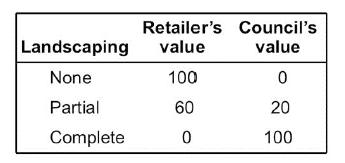
Details of the swing weights that the two parties attach to the three issues are shown below (100 = the most important swing).

The following tentative deal has been reached. The land will be sold by the council for $2 million and a community center will be built, but there will be no landscaping of the site.
(a) Assuming that, for both parties, the issues are mutually preference independent, verify that the values of the tentative deal to the retailer and the council are 62.50 and 36.96, respectively (using normalized weights).
(b) Table 14.4 shows the values of all the possible deals to the two parties (assuming that only the outcomes given above are possible). This information is also displayed in Figure 14.8. The labels on the chart show the values of the deals to the council.
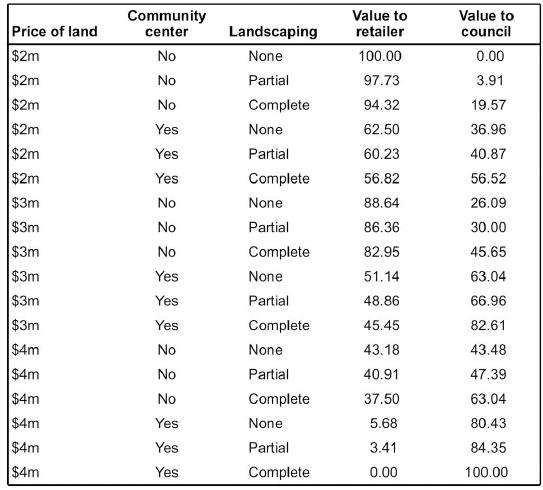
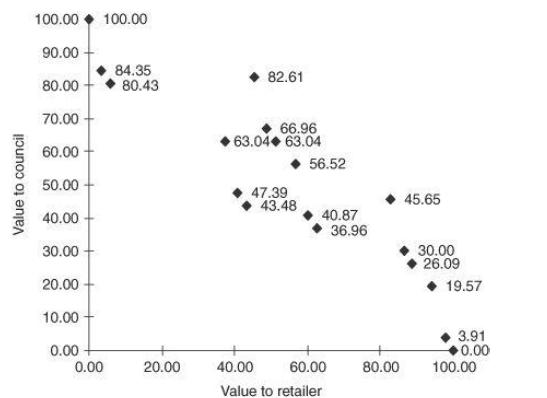
(i) Use the chart and table to advise the two parties on which deal they should agree on.
329 (ii) Explain how you arrived at your recommendation.
(c) One of the supermarket negotiators favors your recommended deal because, having seen the value of the deal to the supermarket and the value to the council, he concludes that the supermarket has got a better deal than the council. Is his thinking correct? Explain your answer.
Step by Step Answer:

Decision Analysis For Management Judgment
ISBN: 9781118740736,9781118889251
5th Edition
Authors: Paul Goodwin , George Wright




